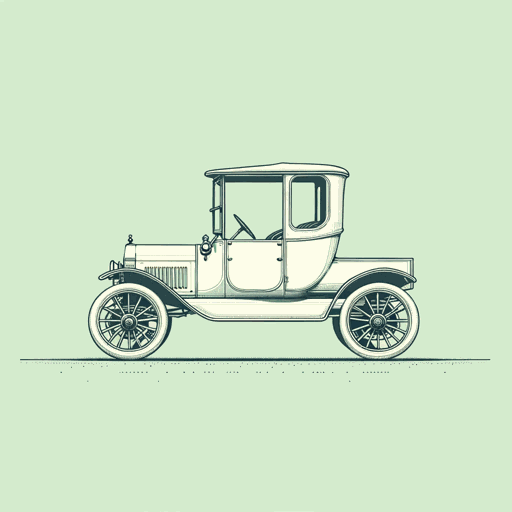100 pages • 3 hours read
Upton SinclairThe Flivver King: A Story of Ford-America
Fiction | Novel | Adult | Published in 1937A modern alternative to SparkNotes and CliffsNotes, SuperSummary offers high-quality Study Guides with detailed chapter summaries and analysis of major themes, characters, and more.
Summary
Chapters 1-3
Chapters 4-6
Chapters 7-9
Chapters 10-12
Chapters 13-15
Chapters 16-18
Chapters 19-21
Chapters 22-24
Chapters 25-27
Chapters 28-30
Chapters 31-33
Chapters 34-36
Chapters 37-39
Chapters 40-42
Chapters 43-45
Chapters 46-48
Chapters 49-51
Chapters 52-54
Chapters 55-57
Chapters 58-60
Chapters 61-63
Chapters 64-66
Chapters 67-69
Chapters 70-72
Chapters 73-75
Chapters 76-78
Chapters 79-81
Chapters 82-84
Chapters 85-92
Character Analysis
Themes
Symbols & Motifs
Important Quotes
Essay Topics
Important Quotes
“One of [Ford’s] ways of being ‘nice’ was liking to talk to kids; their minds were less fixed in the notion that because something never had happened, therefore it never could happen.”
(Chapter 1, Page 1)
This identification of Ford with children, and with inventiveness and open-mindedness more generally, establishes him as a positive character at the beginning of The Flivver King. Although much of the novel is concerned with Ford’s callousness toward his workers and the morally repugnant ideas he circulates in the Independent, Sinclair’s aim is not to portray Ford as an evil individual. Rather, he presents Ford as a well-intentioned and even (at least early on) likable individual whose wealth morally corrupts him.
“Below and behind the seat was this new and queer kind of engine. For many months the inventor had it up on his work-bench, where he could tinker at it and add new parts. It had two cylinders, made out of gas pipe, two and a half inches in diameter. Each cylinder had a piston, closely fitted, and a device by which a drop of petrol was let inside and exploded by an electric spark. When the engine was started, it made a racket like what was known as a gattling-gun; it gave out a grey smoke of disagreeable odour, which caused the inventor to open the door of the barn in a hurry. The neighbours would hear it for a block in every direction, and would say: ‘There goes that crazy loon again. Some day he’s going to blow himself up.’”
(Chapter 1, Page 2)
This quotation describes Ford’s work creating an internal combustion engine. As the neighbors’ reactions, along with the unpleasant smoke, show, the engine is neither something people are widely familiar with nor something Ford has perfected. The first American combustion engine was built by John Stevens in 1798, and Ford had been exposed to internal combustion engines in his factory work in Detroit. Ford built his first working internal combustion engine in 1893.
“Every night he worked until late, apparently having no other interest in the world. On Saturday nights he worked until ungodly hours—a literal statement, since never before had this neighbourhood known of a man working at machinery on Sunday.”
(Chapter 1, Page 3)
This passage establishes Ford as a complex character: he is both industrious (which is considered a positive trait among Americans, embodying certain national virtues) and irreligious (a trait which is viewed with far more skepticism and disapproval in the United States). Ford’s un-Christian habits are particularly interesting, since later Ford will pay lip-service to Christian values, both through the Social Department’s oversight of workers and, in a more sinister fashion, through his insistence on a fundamental ideological and moral opposition between Jewish Americans and Christian Americans.


